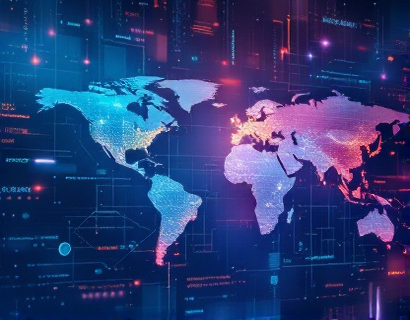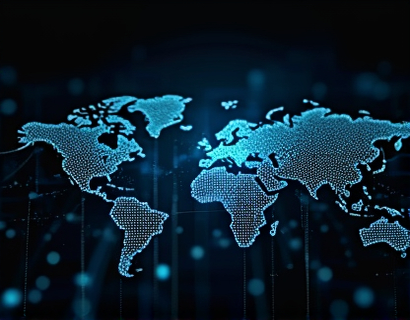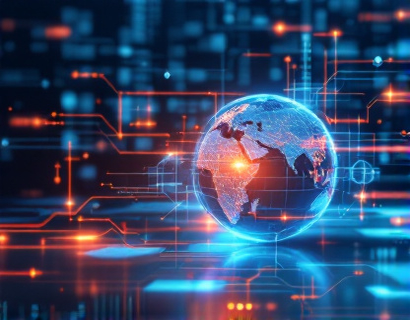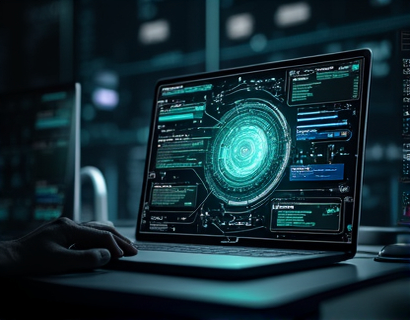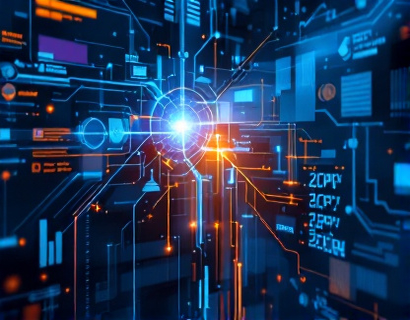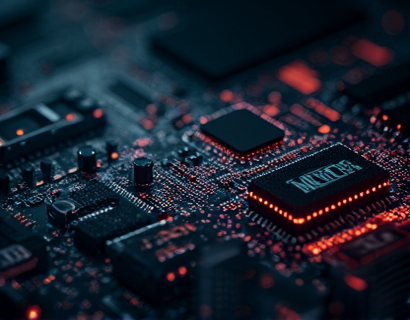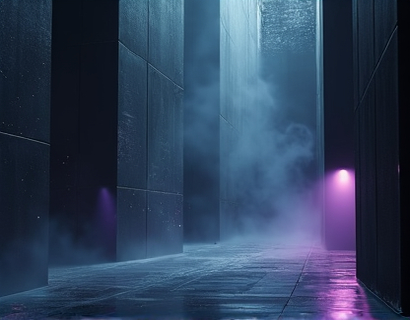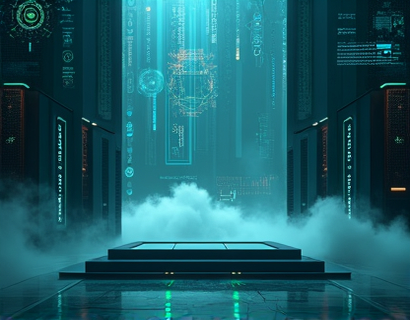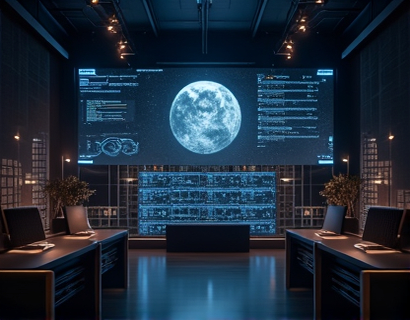Crafting Secure and Personalized Online Memorials with AI and Blockchain
The loss of a loved one is one of life's most profound experiences, leaving an indelible mark on the hearts of those who remain. In an era where digital presence is as significant as physical legacies, the need for secure and personalized online memorials has become increasingly evident. This article explores how the integration of Artificial Intelligence (AI) and blockchain technology can revolutionize the way we create, manage, and preserve digital tributes to our loved ones.
Understanding the Need for Digital Memorials
Bereaved families and individuals often seek meaningful ways to honor their loved ones after a loss. Traditional methods such as physical memorials, while cherished, have limitations when it comes to accessibility and preservation. Online memorials offer a solution, providing a digital space where memories can be shared, celebrated, and preserved for future generations. However, the digital realm introduces new challenges, particularly in ensuring the security and authenticity of these tributes.
AI in Memorial Creation
Artificial Intelligence plays a pivotal role in crafting personalized online memorials. AI algorithms can analyze and curate content from various sources, such as social media, photos, and personal documents, to create a comprehensive and nuanced tribute. This technology can identify and highlight significant moments, emotions, and themes from the deceased's life, ensuring that the memorial is both accurate and heartfelt.
Moreover, AI can assist in natural language processing to generate personalized messages, poems, or reflections that resonate with the essence of the person being remembered. This not only saves time but also adds a layer of personalization that is difficult to achieve manually. AI-driven chatbots can also provide support to users, guiding them through the memorial creation process and offering suggestions to enhance the tribute.
Blockchain for Security and Authenticity
Blockchain technology, known for its role in cryptocurrencies, offers a robust framework for ensuring the security and integrity of digital memorials. By using blockchain, each memorial can be stored in a decentralized and immutable ledger, protecting it from tampering and unauthorized access. This ensures that the tribute remains intact and authentic for years to come.
Blockchain also facilitates the creation of digital certificates of authenticity, verifying the origin and ownership of the memorial. This is particularly important in a digital space where duplicates and forgeries can be easily created. Users can share these certificates with family members and friends, providing peace of mind and confirming the legitimacy of the tribute.
Combining AI and Blockchain for Enhanced Memorials
The true power of integrating AI and blockchain lies in their synergistic capabilities. AI can manage the dynamic aspects of the memorial, such as updating content, managing user interactions, and providing personalized experiences. Meanwhile, blockchain ensures that all data is securely stored and transparently managed.
For instance, AI can analyze user behavior and preferences to tailor the memorial experience, recommending specific memories or features based on individual interactions. This creates a more engaging and meaningful tribute that evolves over time. Blockchain, on the other hand, ensures that all these interactions and updates are recorded securely and cannot be altered without detection.
User Experience and Accessibility
The integration of AI and blockchain in memorial creation also enhances the user experience. A user-friendly interface, powered by AI, can guide users through the memorial setup process, from initial creation to ongoing management. This includes easy upload of photos, videos, and documents, as well as the ability to add personal stories and anecdotes.
Accessibility is another critical aspect. The platform can be designed to be accessible on various devices, including smartphones and tablets, ensuring that users can access and interact with the memorial anytime, anywhere. AI-driven voice recognition and text-to-speech features can further enhance accessibility for users with disabilities.
Preservation of Digital Legacy
One of the most significant advantages of using AI and blockchain for online memorials is the long-term preservation of digital legacies. Traditional digital storage solutions often face obsolescence and data loss risks. Blockchain's decentralized nature and immutable records provide a reliable and enduring storage solution.
AI can also play a role in data migration and format conversion, ensuring that the memorial remains compatible with future technologies. This means that the tribute can be preserved in its original form, allowing future generations to experience and honor the memory of their loved ones as intended.
Community and Support
The creation and management of online memorials are not solitary tasks. A supportive community can provide emotional and practical assistance to those creating and maintaining these tributes. AI can facilitate the formation of support groups, connecting individuals with similar experiences and offering a space for shared memories and condolences.
Blockchain can enhance this community aspect by enabling secure and transparent sharing of resources, such as templates, designs, and content. Users can contribute to the community by sharing their own experiences and insights, creating a rich repository of knowledge and support.
Ethical Considerations and Privacy
While the benefits of AI and blockchain in memorial creation are significant, ethical considerations and privacy must be paramount. The platform must adhere to strict data protection standards, ensuring that personal information is handled with the utmost care. Users should have control over their data, including the ability to manage privacy settings and decide what information is shared.
Transparency in how AI algorithms process and use data is crucial. Users should be informed about the data collection processes and have the option to opt-out of certain features. Blockchain's transparency can also be leveraged to provide users with clear insights into how their data is stored and managed.
Conclusion
The integration of AI and blockchain in the creation of online memorials represents a significant advancement in how we honor and remember our loved ones. This innovative approach not only ensures the security and authenticity of digital tributes but also provides a personalized and meaningful experience for those who create and interact with these memorials. As technology continues to evolve, the potential for enhancing the memorialization process is vast, offering new ways to celebrate lives and preserve memories for generations to come.









